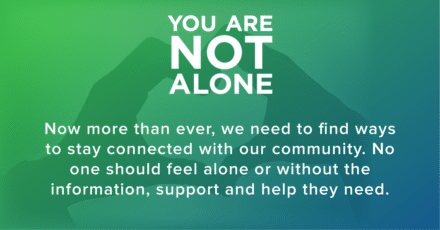 May is National Mental Health Month, a time when many groups and organizations strive to raise awareness of the struggles faced by those with mental health conditions. In spite of the fact that as many as one in every five adults in the United States have some form of mental health problem, there is still a great deal of stigma and shame attached to being diagnosed with mental illness.
May is National Mental Health Month, a time when many groups and organizations strive to raise awareness of the struggles faced by those with mental health conditions. In spite of the fact that as many as one in every five adults in the United States have some form of mental health problem, there is still a great deal of stigma and shame attached to being diagnosed with mental illness.
Because of the stigma, far too many people avoid asking for help with mental health problems, and the consequences of lack of treatment can be severe. The only way to remove the stigma is to take action to change society’s perceptions of people who are diagnosed with mental health conditions.
For More Information About our Women’s Treatment Center
Call (855) 409-0204 Now
Who is Affected by Mental Illness?
According to the National Alliance on Mental Illness (NAMI), over 43 million Americans experience mental health problems in any given year. Over 9 million adults in the U.S. have mental illness that is serious enough to interfere with their day-to-day lives, causing them to be unable to work or to function normally.
Adults that are affected by mental illness may be diagnosed with depression, anxiety disorders, bipolar disorder, schizophrenia, borderline personality disorder or many other conditions. People who have mental illness often isolate from others or begin misusing alcohol and other substances as a method of controlling unpleasant emotions.
How Does Mental Illness Affect Society?
When mental illness is not treated or is undertreated, it impacts not just the individual but also his or her family and society at large. As many as two out of every 10 state prisoners have a recent history of a mental health condition. Percentages are even higher for those in the juvenile justice system.
Less than half of those with a mental health condition actually receive treatment for their condition. Many of those with serious mental illnesses who are not being treated at all end up in homeless shelters because, without treatment, they become unemployable. They may be victimized or treated abusively by others, or they may turn to substance use in an effort to self-medicate.
Consequences of Lack of Treatment for Mental Health Problems
Untreated mental illness can lead to chronic physical illness or the manifestation of physical symptoms, including pain. A person who is experiencing severe depression or anxiety may be unable to work, resulting in poverty. A person who is experiencing poverty may not have the resources to get medical help.
When mental illness isn’t diagnosed or treated correctly, people often experience a rapid decline in their mental health and their ability to function. Symptoms of mental illness aren’t going to just go away. They can lead to incarceration and to suicidal tendencies. Nine out of 10 people who commit suicide have some form of mental illness.
Curing Stigma
People with mental illness need others to be supportive and to advocate on their behalf. National Mental Health Month aims to increase knowledge and awareness of the different ways mental health problems impact individuals and our society. It is possible to cure stigma, which prevents people from getting the help that they need.
During the month of May, NAMI and other organizations that advocate for people with mental illness will promote the theme of curing stigma. They will work toward educating the public and advocating for policies that support people who have mental health problems and their families.
Join the movement toward cure of stigma. Those who struggle with mental illness are not so different from those who struggle with physical illness. They deserve to be treated with compassion and understanding and to be supported in their efforts to get help.
If you or a loved on are struggling with a mental illness, please call us at (855) 409-0204 Now or submit the form below for more information about our treatment programs.
